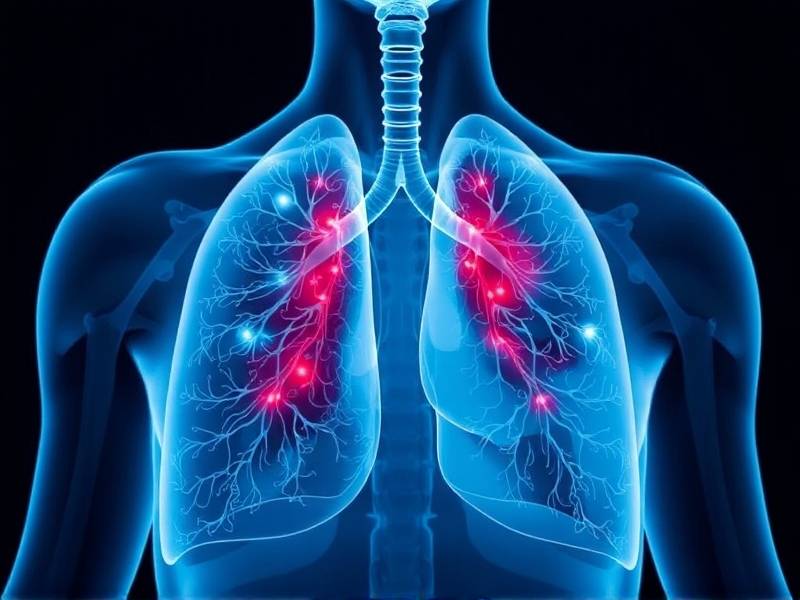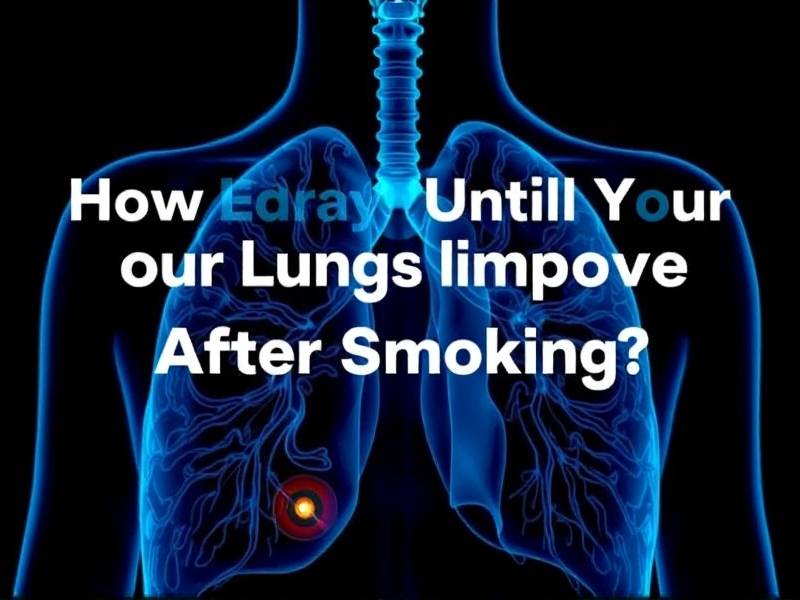How Long Until Your Lungs Improve After Quitting Smoking?
The Journey to Healthier Lungs: How Long After Quitting Smoking?
Introduction: Quitting smoking is a significant step towards a healthier lifestyle. Many smokers are eager to know how long it will take for their lungs to begin improving after they quit. This article delves into the timeline of lung recovery and the factors that can influence this process.
Understanding Lung Damage: Before we discuss the timeline, it's essential to understand the extent of lung damage caused by smoking. Tobacco smoke contains over 7,000 chemicals, many of which are harmful. These chemicals can lead to inflammation, scarring, and a decrease in lung capacity over time.

The Timeline of Lung Improvement:

-
Immediate Benefits: Within hours of quitting smoking, your body begins to heal. Carbon monoxide levels drop, allowing your blood to carry more oxygen. This can result in improved energy levels and better overall well-being.
-
Weeks 1-3: After about three weeks of not smoking, you'll notice an improvement in your sense of taste and smell. Your lungs start to clear out mucus and debris accumulated from years of smoking. Breathing becomes easier as your airways begin to relax.
-
Months 3-9: During this period, your lungs continue to clear out tar and other substances left behind by smoking. You may experience less frequent respiratory infections as your immune system strengthens. Additionally, coughing and shortness of breath may decrease.
-
Years 1-5: After one year of not smoking, the risk of heart disease is reduced by half compared to that of a continuing smoker. Your lungs continue to improve in function and capacity during this time frame.
-
Years 5-10: The risk of stroke decreases significantly after five years without smoking, while the risk of cancer decreases as well. Your lung function may approach that of a nonsmoker's.
-
Years 10-15: The risk of developing chronic obstructive pulmonary disease (COPD) decreases significantly after ten years without smoking. The risk of cancer continues to decline as cells repair themselves.
Factors Influencing Lung Recovery:
-
Duration and Amount Smoked: The longer you smoked and the more cigarettes you smoked daily, the longer it may take for your lungs to recover fully.
-
Genetic Factors: Some individuals may have a genetic predisposition that affects how quickly their lungs recover from smoking damage.
-
Environmental Factors: Exposure to secondhand smoke or air pollution can slow down lung recovery.
-
Overall Health: Smokers with existing health conditions may experience slower lung recovery compared to those who were healthy before starting smoking.
Conclusion:
Quitting smoking is a journey towards better health for both your body and mind. While the timeline for lung recovery varies among individuals, it's evident that giving up tobacco leads to significant improvements in lung function over time. By understanding this process, smokers can be motivated to stay smoke-free and enjoy a healthier life with each passing day.
